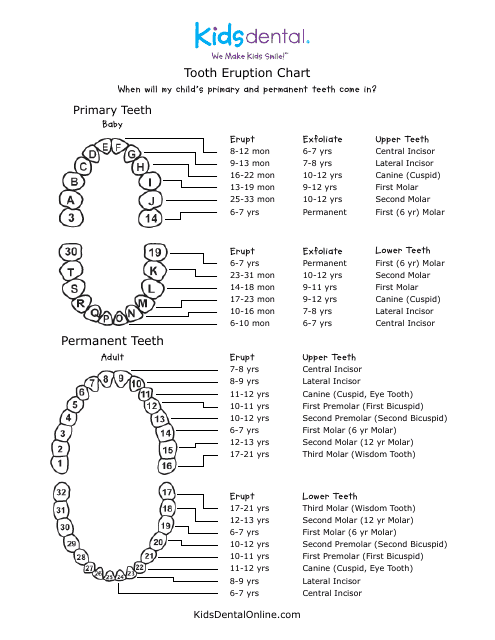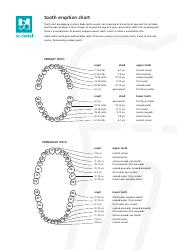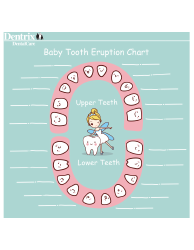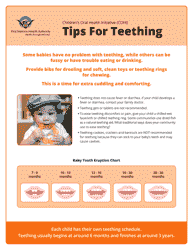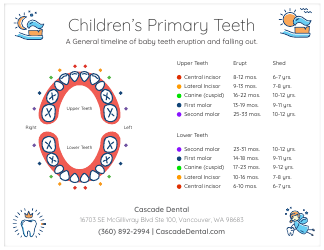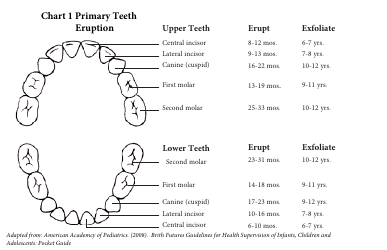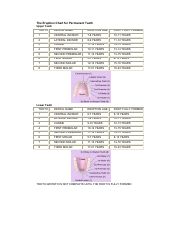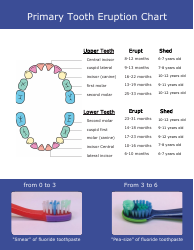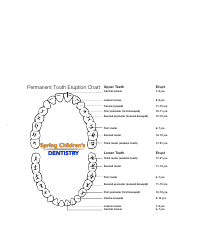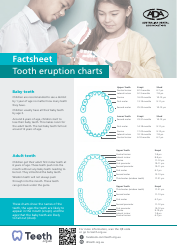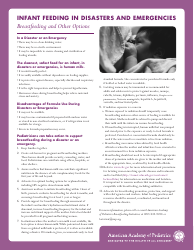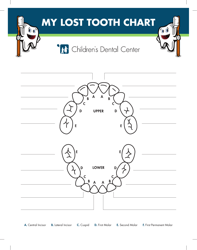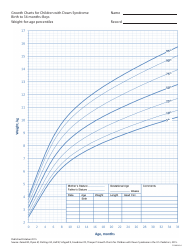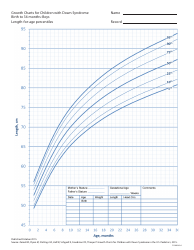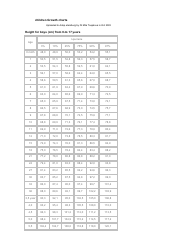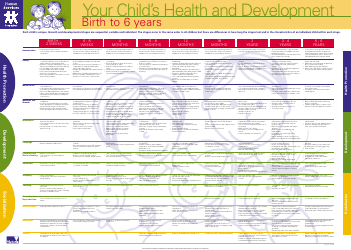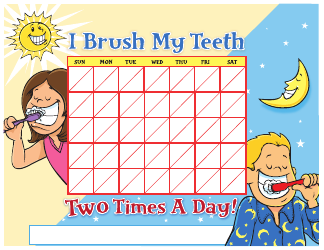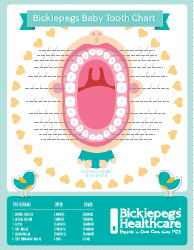Tooth Eruption Chart - Kids Dental
A tooth eruption chart is used by dentists to track the growth and development of a child's teeth. It helps to monitor when each tooth is expected to erupt and ensures that the child's teeth are coming in properly.
FAQ
Q: What is a tooth eruption chart?
A: A tooth eruption chart is a visual guide that shows the order in which a child's teeth typically grow in and erupt.
Q: Why is a tooth eruption chart important?
A: A tooth eruption chart is important because it helps parents and dentists track the growth and development of a child's teeth and ensure they are coming in properly.
Q: At what age do baby teeth start to erupt?
A: Baby teeth typically start to erupt around six months of age, but this can vary from child to child.
Q: What is the order in which baby teeth erupt?
A: The order in which baby teeth erupt can vary, but generally the bottom front teeth (lower central incisors) are the first to come in, followed by the top front teeth (upper central incisors).
Q: When do permanent teeth start to erupt?
A: Permanent teeth start to erupt around age six, with the first permanent molars being the first to come in behind the last baby molars.
Q: Do all children follow the exact same tooth eruption pattern?
A: No, there can be some variation in the tooth eruption pattern from child to child, but the general order of tooth eruption is fairly consistent.
Q: What should parents do if their child's teeth are not erupting in the expected order?
A: If a child's teeth are not erupting in the expected order or there are concerns about their dental development, it is best to consult a pediatric dentist for an evaluation.
Q: When should a child have a full set of baby teeth?
A: By around age three, most children should have a full set of twenty baby teeth.
Q: When do baby teeth start to fall out?
A: Baby teeth typically start to fall out around age six or seven, as the permanent teeth begin to come in.
Q: Is it important to take care of baby teeth even though they will eventually fall out?
A: Yes, it is important to take care of baby teeth because they play a crucial role in a child's ability to chew, speak, and maintain proper alignment for permanent teeth.
